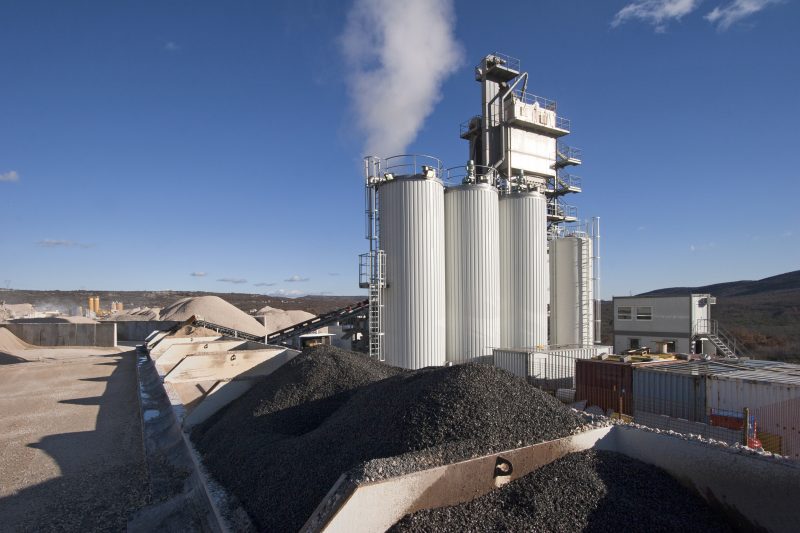
Reducing the CO2 emissions and optimizing the energy consumption in asphalt production.
Alternative Energies will help to reduce the CO2 footprint of an asphalt production site. Asphalt production nowadays is mainly driven by the usage of fossil high-density fuels. Asphalt production companies are seeking for alternative solutions to make the production of asphalt much more sustainable. Furthermore, the recycling of old asphalt harvested from used roads needs to be considered as well.
News.
A visit to Implenia site in Ecublens (VD) was performed to learn more about the asphalt manufacturing process and plant operation features. This recently overhauled plant is equipped with new technologies that aim at plant efficiency and therefore sustainability while improving productivity. This includes efforts to increase energy savings and reduce environmental impacts, improve plant versatility to better meet individual customer requirements and increase use of recycled asphalt in mixtures. The visit provided a good overview of the process requirements and pointed out current limitations and possible improvement areas for higher efficient and cleaner processes, some of them to be tackled in this project.
Targets.
The following questions should be addressed by this project:
- How can we run an asphalt production site with the minimum amount of fossil high-density fuels?
- How can we increase the thermal efficiency of such a plant?
- How can we increase the amount of recycled asphalt in the whole production process?
Initial situation.
Implenia as one of the project partners is seeking for optimised design solutions as they plan to overhaul existing Swiss production sites.
Contact.
Sara Eicher
University of Applied Sciences and Arts Western Switzerland, HEIG-VD
sara.eicher@heig-vd.ch
Pierre Razurel
Implenia Suisse SA
pierre.razurel@implenia.com





